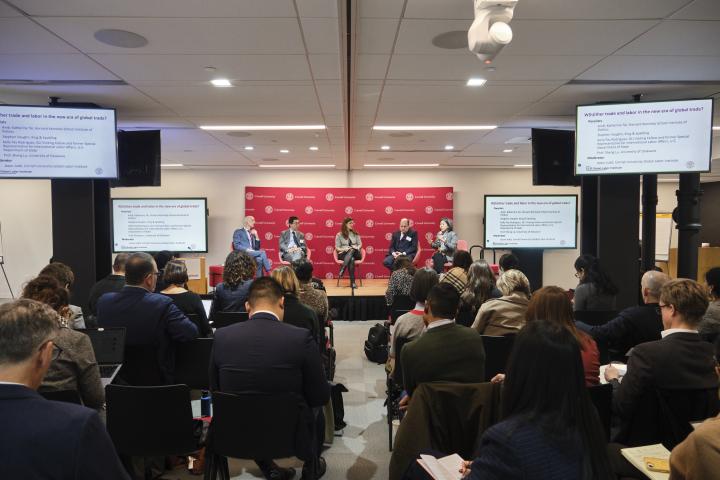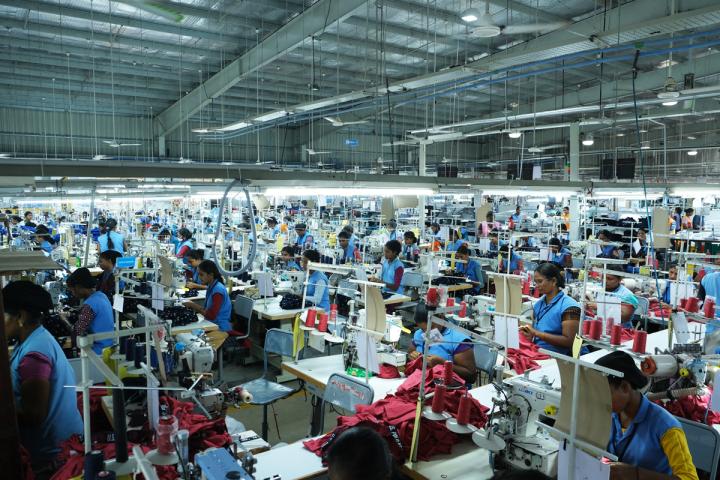
GLI 2024 Conference Rolls Up Sleeves to Tackle Global Apparel Production
“The progress of science begins with this sharing of knowledge, expertise and networks, and today we are guests of the Global Labor Institute (GLI) conference where these three components converge,” said Samira Rafaela at the 2024 GLI Conference on Feb. 2.
The conference explored climate breakdown, global production, due diligence, lead firm liability, and forced labor. Panel discussions provoked critical insights from workers, employers, lead firms, policymakers, researchers and investors.
GLI truly lived up to its global reputation: European Parliament members like Rafaela crossed paths with Bangladeshi and Honduran workers' representatives, H&M sustainability directors, investment bankers, expert researchers, etc.
The Higher Ground report published by GLI and Schroders in Sep. 2023 laid the groundwork for discussions, allowing presenters and panelists to look at the vast web connecting each level of global production.
“Bangladesh is one of the four countries–including Cambodia, Pakistan, and Vietnam–that account for almost one-fifth of global apparel trades,” said Jason Judd, executive director of GLI, who presented the first part of the report.
“As a result of the climate crisis, these countries risk foregoing $65 billion in export earnings and nearly 1 million new jobs in 2030. Failure to adapt to climate change by 2050 reveals an estimated 68.8% decline in earnings and a 34.5% decline in employment, or 8.64 million fewer jobs,” said Judd.
Angus Bauer, head of sustainable investment research at Schroders, presented the investor-focused part of the report, which mapped the supply chain footprint of six global apparel brands across the four production centers.
The report found that workers and manufacturers for all six brands face impacts on productivity from extreme heat and flooding. This productivity loss is conservatively estimated to be 5% of the brand’s net operating profits after tax – a figure alarming to investors.

“From my perspective representing the investor community here, there is a need to do this sort of modeling, to gather this sort of data, think about the context, and then engage with the companies,” said Bauer.
“It’s a conversation to have where you say, ‘Hey, here’s what we found…How are you going to change your capital allocation? How are you going to think about where you source from and how you work with your suppliers?’”
Bauer’s questions about accountability–and the enforcement of accountability–proved a significant theme throughout the conference.
“The existing international recommendations and voluntary frameworks are still important and represent the starting point of our initiative, but if we want to go forward, it is very important to move from a voluntary approach to a mandatory one,” said European Commissioner for Justice Didier Reynders, who joined the conference virtually to talk about the Corporate Sustainability Due Diligence Directive (CSDDD).
Rafaela spoke about establishing the new anti-forced labor instrument in Europe. “As politicians, as consumers and as citizens, we cannot condone forced labor; therefore, products made with forced labor must be banned from the European market because human rights are not for sale.”
The conference tackled every level of the global issue. On-the-ground insight from panelists like Kalpona Akter, founder and executive director of the Bangladesh Centre for Worker Solidarity (BCWS), contrasted the “plumbing” presented by Sarosh Kuruvilla, academic director of GLI.
Kuruvilla outlined how outcome-based metrics are integral to tracking what works when improving working conditions and advancing labor rights. “The ‘plumbing’ that actually underlies the implementation of this ambitious new series of legislation in Europe,” said Kuruvilla.
“Uniting different backgrounds from different parts of the world is a true feat,” said Rafaela. “So, thank you, Global Labor Institute.”
Looking to the future, GLI will take the report’s findings to an OECD apparel due diligence forum on Feb. 21. GLI will also present the report to unions, employers, brands and investors in Hong Kong, Dhaka and Phnom Penh.



